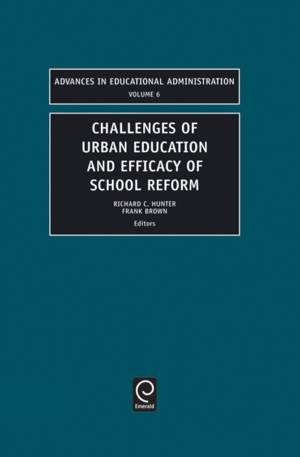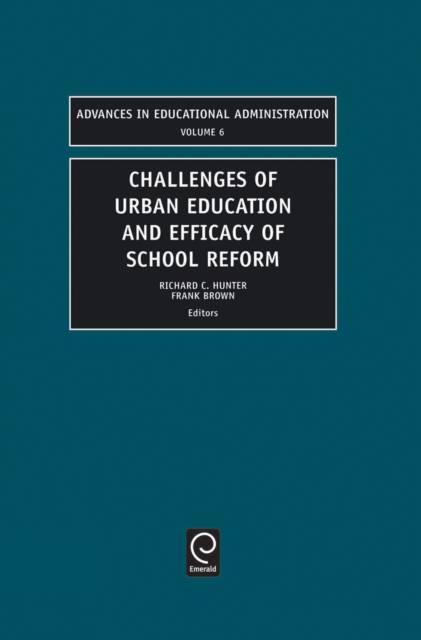
- Afhalen na 1 uur in een winkel met voorraad
- Gratis thuislevering in België vanaf € 30
- Ruim aanbod met 7 miljoen producten
- Afhalen na 1 uur in een winkel met voorraad
- Gratis thuislevering in België vanaf € 30
- Ruim aanbod met 7 miljoen producten
Zoeken
Challenges of Urban Education and Efficacy of School Reform
€ 281,95
+ 563 punten
Omschrijving
Urban education is the primary target of the school reform movement and remains the most difficult to assess and repair. The crisis in urban school systems mirrors many of the problems found in big cities - poor economic conditions for schools and families, personnel shortages and high turnover rates, improper facilities and materials, and political struggles over issues of structure and control. This book analyses the problems affecting urban schools and their students and the efforts that have been made to make these schools more accountable and effective. This book is organized in three parts. Part one provides an overview of many of the issues facing urban school districts, their students and their communities including meeting the needs of racially, ethnically, linguistically and culturally diverse populations, financing schools located in economically disadvantaged areas, and attracting and maintaining qualified teachers and administrators. Part two examines the impact demands for increased accountability and equity influence urban education reform. The issues discussed in this section include academic standards and high stakes testing, technology and the digital divide, the role of leadership and impact of teacher shortages, and school finance and public policy. Part three focuses on strategies developed to reform and improve urban school systems. These chapters examine federal education policy, the impact of school choice and related issues such as privatization and vouchers, the influence of community involvement, and state sponsored reform and reorganization efforts.
Specificaties
Betrokkenen
- Uitgeverij:
Inhoud
- Aantal bladzijden:
- 358
- Taal:
- Engels
- Reeks:
- Reeksnummer:
- nr. 6
Eigenschappen
- Productcode (EAN):
- 9780762304264
- Verschijningsdatum:
- 11/12/2002
- Uitvoering:
- Hardcover
- Formaat:
- Genaaid
- Afmetingen:
- 160 mm x 231 mm
- Gewicht:
- 671 g

Alleen bij Standaard Boekhandel
+ 563 punten op je klantenkaart van Standaard Boekhandel
Beoordelingen
We publiceren alleen reviews die voldoen aan de voorwaarden voor reviews. Bekijk onze voorwaarden voor reviews.










